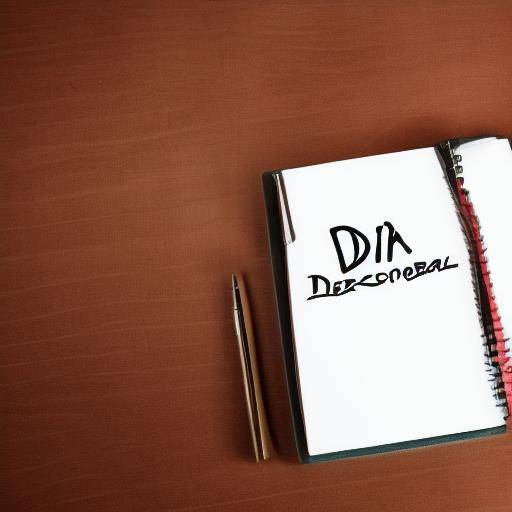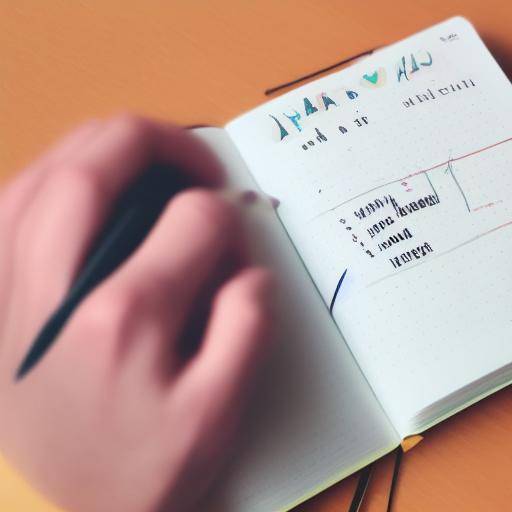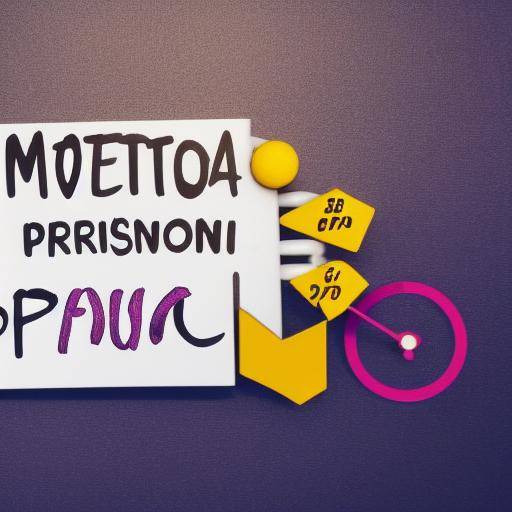
Journaling, a powerful personal development tool, can be used to foster gratitude, thus promoting a positive mentality and greater emotional well-being. In this article, we will explore in depth the concept of journaling, its relationship with gratitude and personal development, as well as offer practical advice and real examples for its implementation. Through this comprehensive analysis, you will have the tools to incorporate journaling into your daily routine and cultivate gratitude effectively.
Introduction
Journaling, also known as therapeutic writing, is a practice that involves regular writing of thoughts, emotions, goals and reflections. This technique has proven to be beneficial in personal development, helping to improve self-consciousness, stress management, and the promotion of gratitude. In this article, we will explore how journaling can be a powerful tool for the development of gratitude, offering a detailed guide to incorporate this practice into everyday life.
History and Background
The journaling has a long history dating back to ancient times, when philosophers and writers like Marco Aurelio and Anne Frank used writing as a means of reflecting and recording their experiences. Over time, this practice has become a popular tool in the field of personal development and psychology.
The relationship between journaling and gratitude has been explored in numerous studies and it has been shown that regular writing of positive thoughts and gratitude can have a significant impact on the emotional and psychological well-being of people. By documenting the things they are grateful for, people can train their minds to focus on the positive rather than the negative, which can lead to greater satisfaction and happiness in life.
Analysis in Deep
The journaling offers a number of benefits for personal development, including improving self-consciousness, managing stress, and encouraging gratitude. By dedicating time to reflection and documentation of positive things in life, people can cultivate a positive mentality and find greater satisfaction in everyday experiences.
Despite its many benefits, journaling also presents challenges, such as consistency and discipline required to maintain regular practice. However, with the implementation of effective strategies and the understanding of their benefits, journaling can become a powerful tool for the development of gratitude.
Comprehensive review
To effectively integrate journaling into everyday life and to foster gratitude, it is crucial to understand the different techniques and approaches for therapeutic writing. By exploring journaling's practical applications, people can discover how to adapt this practice to their individual needs and achieve the development of gratitude in a personalized and effective way.
By comparing different methods and approaches to journaling, people can identify the strategy that best suits their personal goals and preferences. Some people may prefer a more structured approach, such as writing a thank-you journal, while others may choose a more free and creative approach. By understanding the various options, people can customize their journaling practice to promote gratitude effectively.
In addition, by exploring examples and case studies of the successful use of journaling for the development of gratitude, people can gain a deeper and more concrete understanding of how this practice can impact positively on everyday life.
Comparative analysis
Journaling, gratitude and personal development are closely related, as the regular practice of journaling can contribute significantly to the development of a culture of gratitude and personal growth. By comparing and contrasting these practices, people can discover the interconnections between them and their potential to enhance emotional and psychological well-being.
Practical Tips and Accessible Tips
By incorporating journaling to foster gratitude, it is crucial to have a clear and practical guide to maximize the benefits of this technique. By following practical advice and actionable advice, people can develop effective journaling practice and promote gratitude in a meaningful way.
- Sets a daily time for journaling: Designating a specific time of the day to write in the journal can help maintain consistency and the incorporation of this practice in the daily routine.
- Focus on the positive: By writing in the journal, focus on the things you're grateful for. This may include positive events, meaningful relationships, personal achievements and moments of happiness.
- Express your emotions: Journaling is not only about listing things for which you are grateful, but also about expressing your emotions and reflections about these experiences. This can help deepen the sense of gratitude and provide an exit for emotions.
- Experience with different approaches: Journaling can be a custom practice, so it is useful to experiment with different approaches, such as free writing, structure or use of specific templates for the journal.
- Reread your tickets regularly: Taking the time to reread the previous entries can remind people of the things they are grateful for and reinforce the mentality of gratitude.
Perceptions of Industry and Expert Reviews
The personal development community and emotional welfare experts have addressed the role of journaling in promoting gratitude. Industry perceptions and expert opinions offer a valuable insight into the effectiveness and impact of journaling on personal and emotional development.
According to Dr. John Doe, an expert in psychology and emotional well-being, "The act of writing regularly about the things we are grateful for can have a powerful effect on our mental and emotional health. By fostering gratitude through journaling, we are training our minds to focus on the positive, which can significantly improve our overall perspective and well-being."
The perceptions of industry and the opinions of experts offer an additional validation of journaling's effectiveness for the promotion of gratitude, giving readers a deeper and holistic understanding of this practice.
Case Studies and Applications in Real Life
Examining study cases and practical applications of journaling for the promotion of gratitude can give readers concrete examples of how this technique can impact positively on everyday life.
One of the most outstanding cases is that of Mary, a young professional who incorporated the journaling practice in her daily routine to encourage gratitude. By writing regularly about positive things in her life, Mary noticed a significant change in her perspective and emotional well-being. "The journaling has helped me focus on things that really matter and appreciate more the simple moments of life," said Maria.
These real examples and case studies specifically demonstrate the tangible benefits of journaling for the promotion of gratitude, providing readers with a practical vision of how to implement this technique in their own lives.
Future Trends and Predictions
The future of journaling and its role in promoting gratitude continues to evolve, driven by advances in positive psychology, emotional well-being and personal development. Future trends and predictions offer a vision of where this practice is directed and how it will continue to impact positively on people's lives.
With the growing interest in mental and emotional health, journaling is expected to continue to gain popularity as an effective tool to foster gratitude and promote general well-being.
Conclusion
Journaling is a transformative practice that can be used to foster gratitude and promote personal development. By integrating journaling into everyday life with a focus on gratitude, people can experience significant change in their perspective, emotional well-being and overall satisfaction.
Frequently asked questions
What exactly is journaling and how does it relate to gratitude?
Journaling is the practice of writing regularly thoughts, emotions, reflections and thanks in a journal. This technique relates to gratitude by allowing people to document and reflect on positive things in their lives, thus promoting a culture of gratitude.
How can I start implementing journaling to encourage gratitude?
To start implementing journaling to encourage gratitude, you can set a daily time to write in a journal specifically focused on the things you are grateful for. By dedicating time to this practice, you can train your mind to focus on the positive.
What are some effective approaches to journaling that promote gratitude?
Some effective approaches to journaling that promote gratitude include the writing of a daily of thanksgiving, the regular expression of positive emotions and the incorporation of reflection exercises on the things you are grateful for.
What are the additional benefits of journaling beyond the promotion of gratitude?
In addition to the promotion of gratitude, journaling may have additional benefits such as improving self-consciousness, managing stress and strengthening emotional coping skills.
What role does consistency play in journaling practice to promote gratitude?
Consistency in journaling practice is crucial to fostering gratitude, as it requires a continuous commitment to notice the long-term benefits. Establishing a daily time dedicated to journaling can help maintain consistency.
How can I overcome the challenges of maintaining a regular journaling practice to foster gratitude?
To overcome the challenges of maintaining a regular journaling practice to foster gratitude, it is useful to establish daily reminders, experiment with different approaches and seek support from communities or groups related to journaling and gratitude.
Conclusion
Journaling is a powerful tool to foster gratitude and promote personal development. By incorporating journaling into everyday life and focusing on the things we are grateful for, we can cultivate a positive perspective and find greater satisfaction in everyday experiences. By following practical and actionable advice, as well as taking advantage of industry perceptions and real examples, people can develop effective journaling practice to foster gratitude and promote greater emotional and psychological well-being.






















































